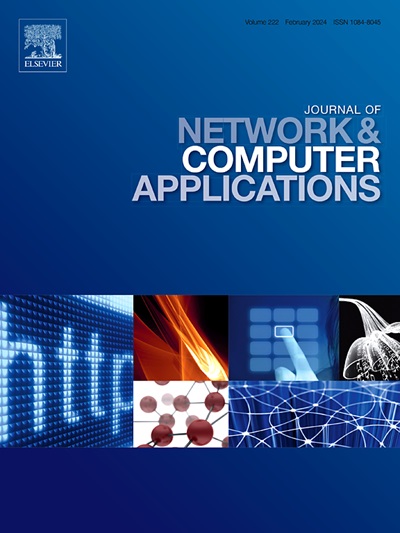基于多准则决策模型的物联网雾云网络延迟感知部分任务卸载
IF 8
2区 计算机科学
Q1 COMPUTER SCIENCE, HARDWARE & ARCHITECTURE
引用次数: 0
摘要
雾计算比传统云计算提供更少的服务延迟,在异构环境中卸载计算任务方面发挥着重要作用。由于电池电量、存储和计算能力不足,物联网(IoT)设备无法处理复杂的任务。由于更多的响应时间和传输成本,完全卸载在提供有效的计算延迟方面存在问题。克服这个问题的一个合适的解决方案是将任务划分为可拆分的子任务。考虑处理效率、截止日期等多准则决策参数有助于实现高效的资源分配和任务分配。将匹配理论应用于任务节点映射到异构雾节点和虚拟机中,以保证稳定性。与基线算法相比,我们提出的RABP (Resource Allocation based Processing Efficiency)和TAC (Task Assignment based Completion Time)等算法能够提供合理的服务延迟,并丢弃那些没有在截止日期内执行的非有益任务。本文章由计算机程序翻译,如有差异,请以英文原文为准。
Delay-aware partial task offloading using multicriteria decision model in IoT–fog–cloud networks
Fog computing plays a prominent role in offloading computational tasks in heterogeneous environments since it provides less service delay than traditional cloud computing. The Internet of Things (IoT) devices cannot handle complex tasks due to less battery power, storage and computational capability. Full offloading has issues in providing efficient computation delay due to more response time and transmission cost. A suitable solution to overcome this problem is to partition the tasks into splittable subtasks. Considering multi-criteria decision parameters like processing efficiency and deadline helps to achieve efficient resource allocation and task assignment. The matching theory is applied to map task nodes to heterogeneous fog nodes and VMs for stability. Compared to baseline algorithms, proposed algorithms like Resource Allocation based on Processing Efficiency (RABP) and Task Assignment Based on Completion Time (TAC) are efficient enough to provide reasonable service delay and discard the non-beneficial tasks, i.e., tasks that do not execute within the deadline.
求助全文
通过发布文献求助,成功后即可免费获取论文全文。
去求助
来源期刊

Journal of Network and Computer Applications
工程技术-计算机:跨学科应用
CiteScore
21.50
自引率
3.40%
发文量
142
审稿时长
37 days
期刊介绍:
The Journal of Network and Computer Applications welcomes research contributions, surveys, and notes in all areas relating to computer networks and applications thereof. Sample topics include new design techniques, interesting or novel applications, components or standards; computer networks with tools such as WWW; emerging standards for internet protocols; Wireless networks; Mobile Computing; emerging computing models such as cloud computing, grid computing; applications of networked systems for remote collaboration and telemedicine, etc. The journal is abstracted and indexed in Scopus, Engineering Index, Web of Science, Science Citation Index Expanded and INSPEC.
 求助内容:
求助内容: 应助结果提醒方式:
应助结果提醒方式:


